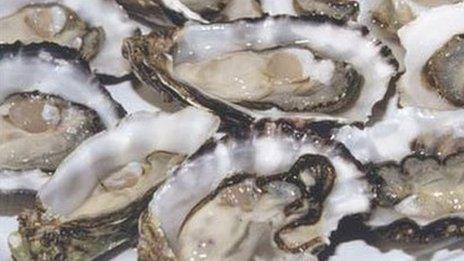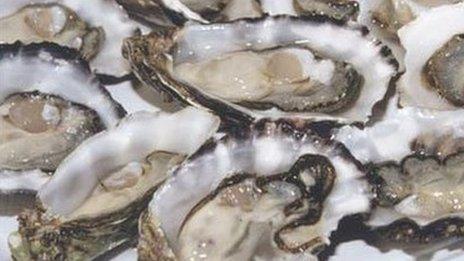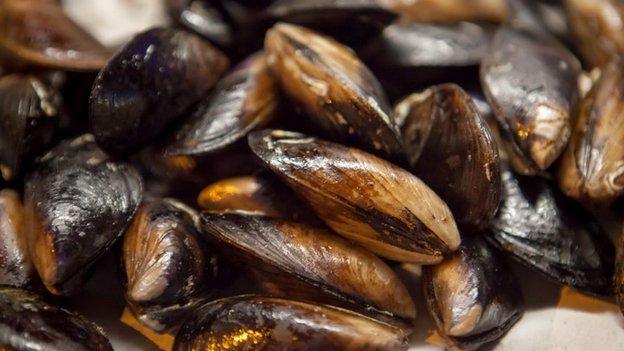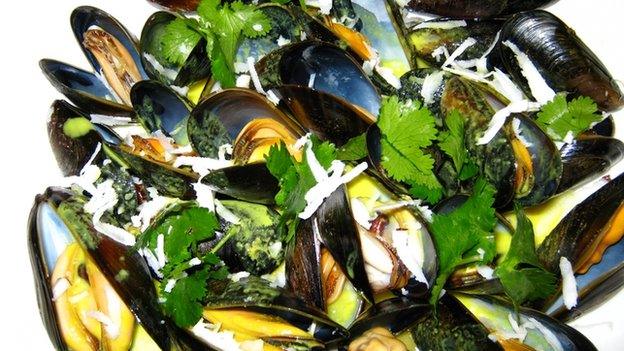Cornwall shellfish farms closed amid sewage fears
- Published

Fishermen have asked the authorities to disregard the results while an investigation takes place
Sixteen shellfish farming beds have been closed down after tests showed high levels of pollution.
Sewage bacteria, thought to be E. coli, was found in the Camel Estuary, St Austell and Falmouth Bays, said the Food Standards Agency (FSA).
The Shellfish Association of Great Britain contests the move, claiming the test results are "inconceivable".
The FSA said it was "monitoring the situation" but the shellfish beds would remain closed.
'Raw sewage'
David Jarrard, of the Shellfish Association, said: "The industry treats food safety as paramount.
"But I was astonished with these results, we have never seen any of this magnitude before and I just don't believe them.
"The results we have had are akin to raw sewage and for that to happen in one river might be possible but to find it in all these areas is inconceivable."
It has asked the FSA to disregard the results while an investigation takes place.
Cornwall Port Health Authority said it was working with the FSA and the industry "to ascertain the reason for such high results with a view to lifting the current restrictions at the earliest possible opportunity".
An FSA spokesperson said: "The results are unusually high which is why they require further investigation.
"We are monitoring the situation by taking further samples but until we have evidence to the contrary the beds must remain closed to protect public health."
- Published3 October 2014

- Published8 August 2014

- Published18 July 2014

- Published20 May 2014
